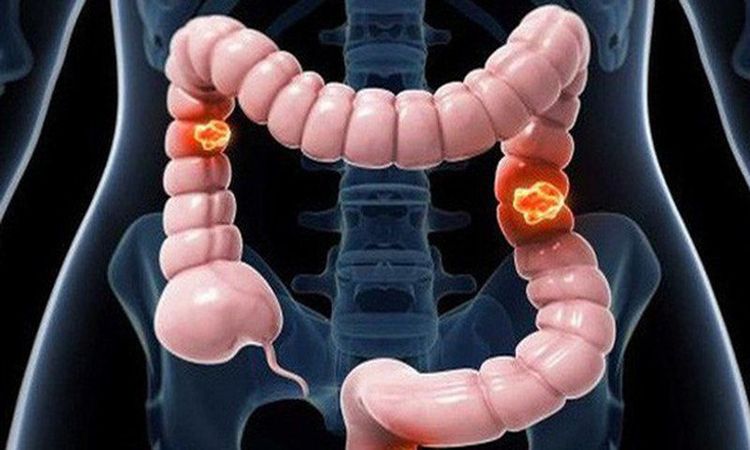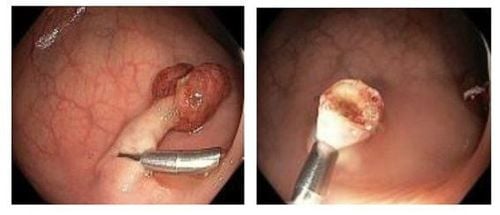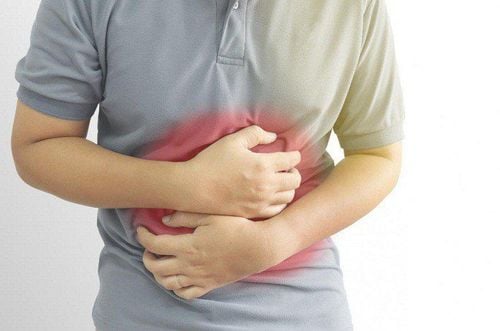The article was professionally consulted by MSc, MD - Gastrointestinal Surgeon - General Surgery Department - Vinmec Ha Long International Hospital.
Colon polyps are usually benign, but doctors often recommend removing them as they may develop into cancer later. So, do colon polyps grow back after removal?
1. What are colon polyps?
Colon polyps are abnormal growths on the inner lining of the colon. However, most colon polyps are benign. But over time, some polyps can develop into colon cancer, even leading to death if detected at a late stage.
Two common types of colon polyps:
• Hyperplastic and inflammatory polyps. These polyps typically do not have the risk of becoming malignant colon polyps.
• Adenomas or adenomatous polyps. If left untreated, they may develop into colon cancer.

In most cases, colon polyps do not cause symptoms, and patients may discover them incidentally during routine colorectal cancer screening. However, in some cases, the condition may present symptoms such as:
• Blood in the stool or rectal bleeding
• Constipation or diarrhea lasting more than a week
• Nausea or vomiting if you have a large polyp growth
Anyone can develop colon polyps. Individuals over the age of 50, those who are overweight or smoke, or those with a personal or family history of colon polyps or colorectal cancer have a higher risk of developing the condition.
2. How are colon polyps treated?
The best way to treat colon polyps is to remove them. The polyps are examined under a microscope after removal to classify them and determine if there are any cancerous cells. Doctors can usually remove the polyps without the need for surgery.
If the polyp is large, surgery is required, usually endoscopic surgery. This is a minimally invasive surgery with high effectiveness.

3. Do colon polyps grow back after removal?
After colon polyp removal, it rarely grows back. However, at least 30% of patients may have polyp growth return after surgery. Therefore, patients should not be subjective and must have regular follow-ups for 3 to 5 years after surgery. After colon polyp removal, patients are indicated certain medications that can reduce the risk of new polyps forming.
4. How can colon polyps be prevented?
To prevent colon polyps, you should maintain a healthy diet, eat plenty of fruits, vegetables, whole grains, and lean meats, increase your intake of vitamin D and calcium. Foods rich in vitamin D and calcium including yogurt, milk, cheese, broccoli, eggs, liver, and fish.

In addition, you should reduce your intake of high-fat foods, red meat, and processed foods. Avoiding smoking and exercising regularly are also important steps in preventing the development of colon polyps.
For individuals at high risk of colorectal cancer, such as those with inflammatory bowel disease (ulcerative colitis or Crohn's disease), a family history of colorectal cancer, suspected familial adenomatous polyposis, Lynch syndrome, or especially those with colon polyps, colorectal cancer screening is very essential. The colorectal cancer screening and early detection package offered by Vinmec International General Hospital is an excellent solution for this group of individuals.
By participating in the screening package, customers will receive:
• A consultation with a Gastroenterology specialist (by appointment);
• Performing tests such as:
• Full colonoscopy using NBI endoscopy machine with anesthesia;
• Diagnostic colonoscopy with a flexible endoscope (using NBI machine with anesthesia).
To arrange an appointment, please call HOTLINE or make your reservation directly HERE. You may also download the MyVinmec app to schedule appointments faster and manage your reservations more conveniently.
To arrange an appointment, please call HOTLINE or make your reservation directly HERE. You may also download the MyVinmec app to schedule appointments faster and manage your reservations more conveniently.








